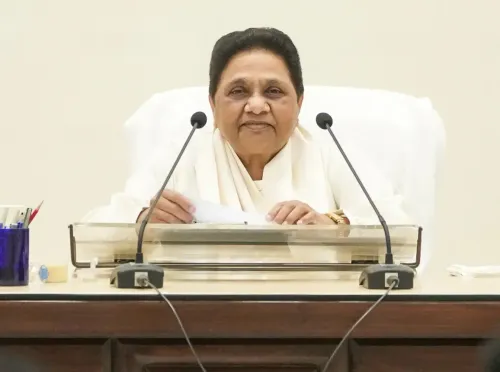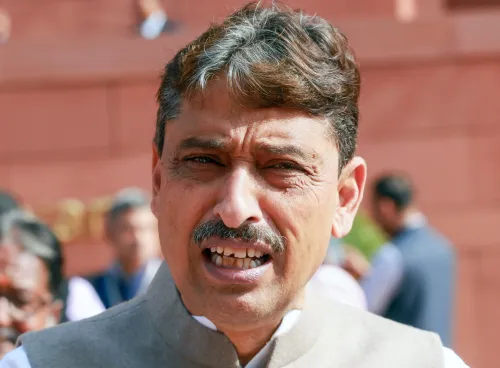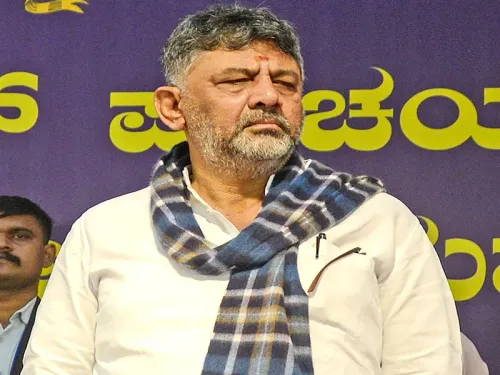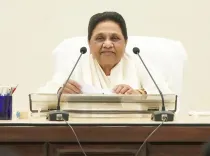Should Rural Banks Increase Agriculture Credit Disbursement?
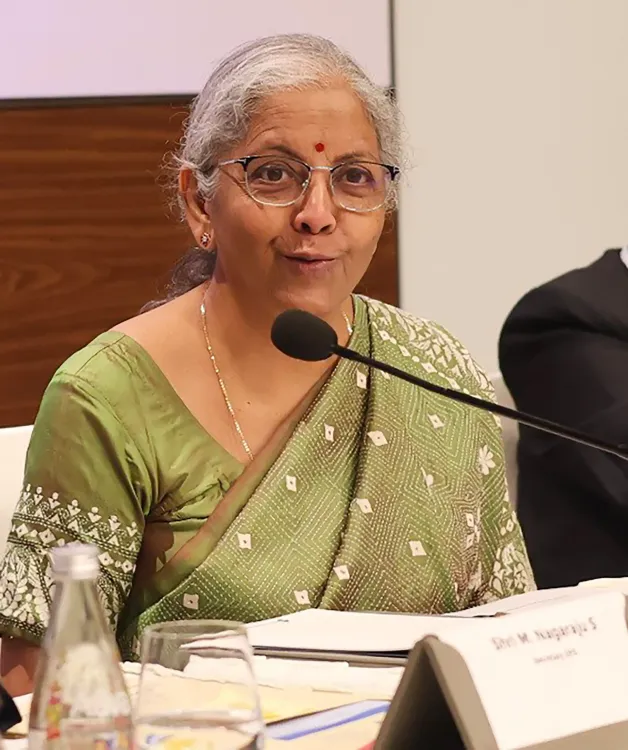
Synopsis
Key Takeaways
- Rural banks must increase agricultural credit disbursement.
- Collaboration with state departments is crucial.
- Focus on financial inclusion and performance metrics.
- Seizing opportunities from GST rationalization is essential.
- Enhancing services for Farmer Producer Organizations is necessary.
New Delhi, Oct 17 (NationPress) Union Finance Minister Nirmala Sitharaman has urged rural banks to enhance their credit distribution to address the growing needs of the agriculture and allied sectors, as per a statement from the Finance Ministry released on Friday.
During a review meeting of the Karnataka Grameena Bank (KaGB) held in Ballari on Thursday, the Finance Minister evaluated crucial metrics such as credit growth, non-performing assets (NPAs), financial inclusion performance, and the execution of government initiatives.
FM Sitharaman also called on all involved parties to undertake necessary actions to tap into the potential of allied agricultural activities in the area. Both KaGB and Canara Bank were specifically instructed to collaborate with state government departments to boost credit provision for MSMEs and allied sectors.
The rationalization of GST rates has created new opportunities in rural regions, leading to increased consumption and suggesting that banks should provide more funding, the Finance Minister pointed out. She encouraged rural banks to seize this opportunity to meet the credit needs of semi-urban and rural locales.
The Union Minister indicated that the capital needs of various Farmer Producer Organizations (FPOs) are being addressed by Development Financial Institutions and government agencies. However, she emphasized that banks must fulfill the working capital requirements. Rural banks should adapt their products and services to meet the needs of FPOs, fostering a mutually beneficial relationship for the sustainable development of the rural economy.
Additionally, she remarked that numerous companies are relocating their services, such as data centers, from tier-1 to tier-2 and tier-3 cities. Rural banks should concentrate on these emerging sectors to enhance their financial well-being. The minister urged KaGB to refine its business strategies to achieve profitability and tackle the challenges posed by stressed assets.
The Union Minister advised both KaGB and the Sponsor Bank to connect with local committees at the panchayat level to enhance the application screening process for government-sponsored programs like PM-Vishwakarma and PMFME.
Furthermore, she encouraged KaGB to expand its reach in the Kalyan Karnataka region by establishing new branches in areas lacking banking facilities. Enhancing operational efficiency through better asset quality, adoption of new technologies, and improved customer service was also emphasized.
Secretary of DFS, M Nagaraju, pointed out that the integration of systems and processes has been finalized post-amalgamation, urging a medium-term business plan and evaluation by the sponsor bank for the long-term viability of the rural bank.
Nagaraju acknowledged the potential in agro-processing and MSMEs in the region and urged KaGB to partner with NABARD to create value for farmers in agriculture and related sectors.
He commended KaGB for its significant progress in the Atal Pension Yojana and recommended enhancing its performance in other financial inclusion initiatives such as PMJJBY, PMSBY, and PMJDY. Additionally, he proposed a future strategy for collaboration with public sector banks to offer banking services in unserved and underserved areas.



